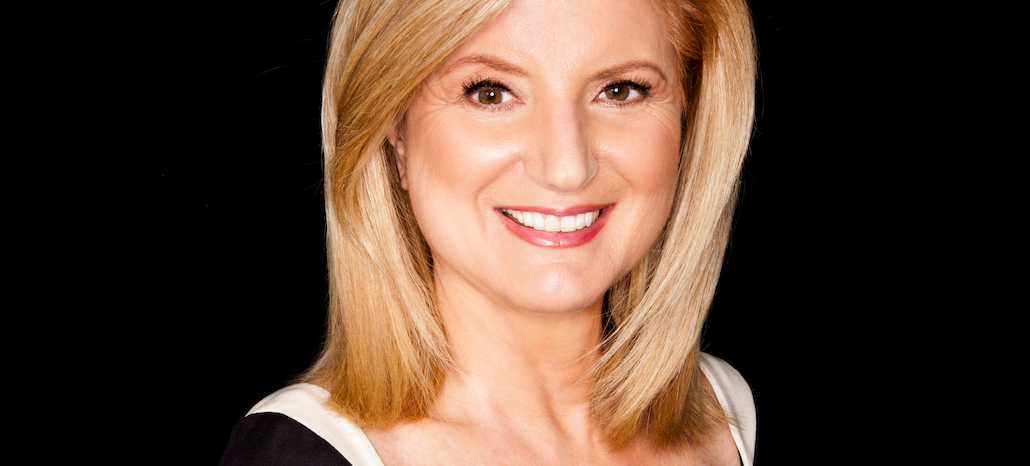Save 50% on a 3-month Digiday+ membership. Ends Dec 5.
Sleep coverage and nap rooms: What happens to Arianna Huffington’s initiatives after she leaves the HuffPost

Arianna Huffington is stepping down from the namesake news site that she co-founded 10 years ago to focus on a new health and wellness company, Thrive Global. Since The Huffington Post launched in 2005, she and her team turned it into an internet news behemoth by opening it up to outside contributors, often leveraging her own celebrity connections, and aggregating from other publishers.
Huffington also left her mark in the form of a breakneck global expansion, frenetic work pace (but nap rooms!) and coverage of her pet interests like sleep. An interim committee of executives will step in to fill her role while a new editor in chief is sought.
With the future of a post-Huffington Huffington Post up for grabs, here are a few areas of potential unraveling:
Editorial coverage
Huffington built up the HuffPost as a liberal counterpart to The Drudge Report and over time supplemented aggregation with original reporting. The HuffPost’s core political identity will probably endure. But Huffington has also used the publication to further her pet interests, like sleep, which she made a cause célèbre after collapsing on the job from exhaustion. She even installed two nap rooms at the HuffPost and wrote a book, “The Sleep Revolution.”
Huffington has insisted that sleep is an area around which brands also increasingly want to associate themselves, through native advertising partnerships. Such outside interests have drawn criticism to the HuffPost, which was called a “sleep machine” for its steady flow of stories to promote the book and the importance of sleep in general. (The publication said there was no evidence that the HuffPost overdid its coverage of the book.)
Her leaving might be a wake-up call to Verizon, which bought HuffPost parent AOL last year, to take a hard look at what HuffPost is doing well (breaking news, politics and celebrity bloggers like Jennifer Aniston) and doubling down on those, as well as building up video. “I can only imagine they’ll happily cede sleep coverage to [Huffington’s] new Thrive business,” one former editor said. Enjoy those nap rooms while they last.
Global expansion
Arianna Huffington had aggressive plans to expand the HuffPost overseas. The site has 15 international editions from Canada to Japan to Huffington’s native Greece, with a goal of being in 50 markets by the end of the decade. By 2014, three years into its global expansion, half its traffic was coming from outside the U.S. But it’s hard for publishers in general to make their overseas operations profitable. As recently as 2014, the HuffPost said while international markets might supply half the HuffPost’s traffic, they were supplying no more than 20 percent of revenue and as little as 10 percent.
Ad position: web_incontent_pos1
The company hasn’t been consistently profitable (it broke even in 2015), saying it’s chosen to invest overseas instead. So it’s easy to imagine HuffPost’s new parent company curtailing its global ambitions. “I wouldn’t be surprised if international deals get unraveled and HuffPost just gets straight licensing fees,” one former senior editor said. “I know AOL after the merger was shocked by how much Arianna was spending and how little revenue was coming in. Given the decline of traffic and drop in CPM on banner ads, I’d assume Verizon is even more interested in limiting the play. I assume this accelerates HuffPost into producer of video that can fill Verizon’s pipes.”
Unionization
In December, a majority of HuffPost editorial staffers signed union cards, signaling they supported unionizing. Huffington herself was an early supporter of employees’ efforts to organize, although the Writer’s Guild of America at one point criticized her for stalling in recognizing the union. Lowell Peterson, executive director of WGA East, said he didn’t think her departure would have an impact on the bargaining effort, given there’s broad support among employees for the union and the managers that are negotiating on behalf of the company share her views.
“Politically, she understands the importance of collective bargaining,” he said. “My sense is, her top managers feel the same way.”
More in Media

What publishers are wishing for this holiday season: End AI scraping and determine AI-powered audience value
Publishers want a fair, structured, regulated AI environment and they also want to define what the next decade of audience metrics looks like.

Digiday+ Research Subscription Index 2025: Subscription strategies from Bloomberg, The New York Times, Vox and others
Digiday’s third annual Subscription Index examines and measures publishers’ subscription strategies to identify common approaches and key tactics among Bloomberg, The New York Times, Vox and others.

From lawsuits to lobbying: How publishers are fighting AI
We may be closing out 2025, but publishers aren’t retreating from the battle of AI search — some are escalating it, and they expect the fight to stretch deep into 2026.
Ad position: web_bfu
